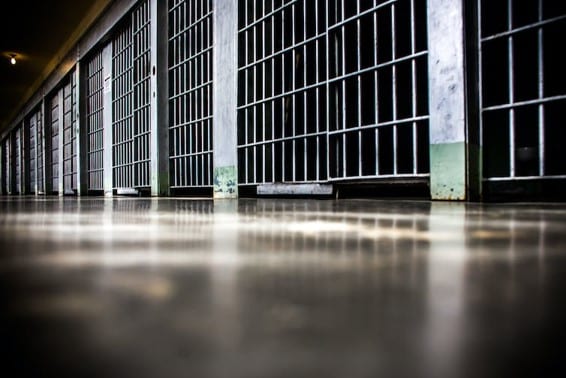The United States of America is currently the only country in the world to actively sentence juveniles to life imprisonment without the possibility of parole. To class as a juvenile, the age at which the crime was committed must be under 18 years. Current figures stand at around 2’500 young offenders serving life without parole sentences across America.
This means such young offenders will spend the rest of their lives in prison with no potential for release back into society. For those facing this prospect, life really does mean life. In the US between 1980 and 2005: 43,621 juveniles were arrested for murder, 109,563 for rape and 1,240,199 for aggravated assault.
More recent figures from the Office and Juvenile and Justice Prevention indicate juvenile arrests for violent crimes have seen a decrease of 29% between the years of 2006 and 2011.
Looking around the world, similar numbers can be found in Panama, the Philippines, Kazakhstan, Paraquay, Cuba and Belarus. In 2009, the US had the 3rd highest rates of murder committed by juveniles and ranked 14th in the murders per capital committed by juveniles (Stimson and Grossman, 2009). There is no doubt that juvenile crime in the United States is a problem.
Juvenile Justice – Life Without Parole
A juvenile life without parole sentence is generally reserved for the most serious of crimes and is not a sentence handed down lightly. The majority of youth crime is dealt with within the juvenile justice system in the State the crime was committed.
For a life without parole sentence to be proposed, this is not for adolescents breaking and entering, destroying property or stealing handbags. This is capital murder, mass murder, serious sexual offenses and ultimately the kinds of crimes you could say only adults would commit. The fact that forty-three States plus the District of Columbia and the Federal Government have this policy does indicate a level of support for its existence.
Juvenile Crime and Sentencing
According to Amnesty International, the perception that those who receive such sentences are offenders with a history of criminal activity and who were the perpetrators of very serious criminal acts is inaccurate.
They estimate:
- for 59% of juveniles who received a life without parole sentence, it was their first ever offense
- 16% were between the ages of 13-15 years at the time the offense was committed
- for the vast majority of juveniles who received this sentence, it was for a felony murder charge
- 26% were for robbery or burglary where a co-participant committed murder, not the individual themselves
“If the punishment is to fit the crime, both the nature of the offence and the culpability or moral responsibility of the offender must be taken into account.” – Amnesty International, 2005
Juvenile Life Without Parole Sentences Across States
There are differences across States in how this sentence is used. While New Jersey and Utah have the law in place to sentence juveniles to life without parole, in 2012 they did not have any juveniles serving this sentence. Whereas, Louisiana and Michigan have the highest rates of juveniles serving life without parole sentences.
The United States may be the only country to issue these sentences, but there are other countries who have the laws to do so. These include Antigua and Barbuda, Argentina, Australia, Cuba, Dominica, Saint Vincent and the Grenadines, the Solomon Islands and Sri Lanka. However, in these countries, they generally either allow parole or define a life sentence as a term of years.
The Meaning of Life Without Parole for Juveniles
After a rapid increase in juvenile crime in the late 1980’s and the 1990’s causing policies to be quickly developed and activated in response, juvenile crime levels plateaued and this rise did not continue as predicted. However, the changes in laws and attitudes towards juvenile offenders remained the same.
The reasons why a juvenile may get themselves involved in crime can vary greatly. While a large percentage can come from poorer backgrounds there are a significant percentage of juveniles who do not fit this profile of poverty, low education, disruptive family life and mental health problems. Simply, juvenile crime cannot be blamed on one single factor or problematic area.
Social-economic status, mental or physical disabilities, morals and beliefs and family background all come into play alongside issues more prominent for teens than for adults such as peer pressure, social exclusion, and risk-taking behavior.
Juvenile criminals have more to lose than adult criminals. Their future employment, relationships and schooling can all be affected. Furthermore, being caught, charged and sent to a facility full of other juvenile delinquents or adult offenders can provide an opportunity to learn and develop in ways not exactly advantageous to a life outside away from crime and on the straight and narrow.
Although not a death penalty in the literal sense, a juvenile life without parole sentence means these young offenders will die in prison. There will be no rehabilitation, no reform, no opportunity for remorse and education, no option of turning their lives around and following a moral and legal path.
Society tells them the actions they have taken were so severe there will never be any way of repenting for them and they can never be rehabilitated. They are bad to the core and they always will be and nobody has any belief in them that they could be any different. That is a very serious message to send to a juvenile.
Change, Reform, and Rehabilitation for Juveniles
It cannot be denied that as with adults, there are some juveniles who are particularly dangerous, where there are questions over their ability to change and reform and whether they would ever be safe in the community, or rather would the community ever be safe from them.
In adult cases, the rate of the death penalty as an outcome for a trial has reduced significantly with juries opting for life without parole sentences more often. In the case of murder, it is a life for a life. You have taken the life of another and you, therefore, shall now spend the rest of your life in prison because of it.
Adults have full maturity and understanding. They have developed the ability to control their impulses, weigh up decisions, and consider the consequences of their actions, controlling their behavior accordingly. Their decision to commit their crime anyway suggests they are less likely to change and reform. By nature, a juvenile will develop more skills, more reasoning, and decision-making abilities and therefore the changes of development and reform are much more positive within a juvenile than within an adult. With a life without parole sentence, however, they will never get that chance.




I’m truly enjoying the design and layout of
your blog. It’s a very easy on the eyes which makes it much more pleasant for me to come here and visit more often. Did
you hire out a developer to create your theme? Fantastic work!
I was more than happy to uncover this website.
I want to to thank you for your time just for this fantastic read!!
I definitely savored every little bit of it and
i also have you saved as a favorite to check out new stuff in your web site.
Informative article, exactly what I needed.